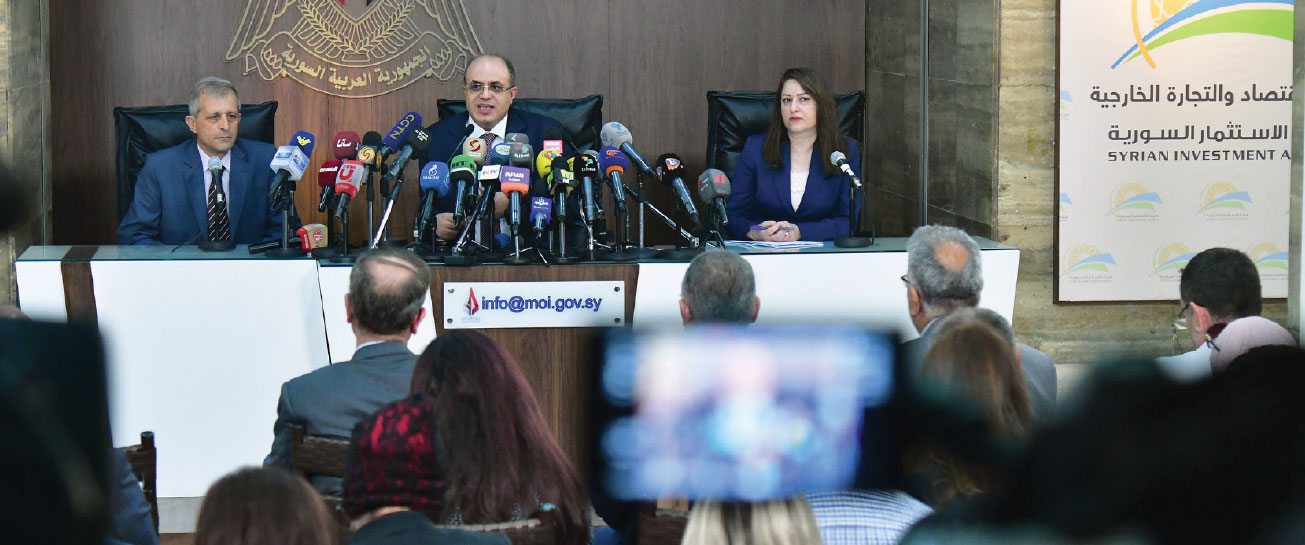During a press conference on Wednesday, the Minister of Economy and Foreign Trade Mohammed Samer al-Khalil confirmed that Syria will become a very productive economy in many areas in the coming period. To this end, Syria will need great efforts from all in both the public and private sectors. Khalil added that there are some breakthroughs worldwide and investment opportunities in Syria that are large and promising. Several establishments have been restored to safety and started to enter the market. Moreover, Khalil pointed out that Syria’s overall debt is not large, despite the war that Syria was exposed to. He noted that, during the war, there had been a decline in economic indicators growth rates, with 2013 being the worst year for the Syrian economy.
Sector losses
On the losses of the economic sectors in Syria during the war, the minister said that many sectors have been systematically targeted. He asserted that, up until 2020, the electricity sector’s losses in Syria had totaled USD100 billion, and 95 billion USD in the oil sector.
Read Also: Investment Opportunities in Syria are Promising, Minister Khalil Says
He pointed out that, oil and gas fields and wells are being stolen under U.S supervision in the northeastern region. Regarding the impact of extending sanctions in the investment law, he said that circumventing the sanctions has become a Syrian craft. A company that is afraid of sanctions can appear without its real name. Within the sector, some companies do not fear sanctions because they do not deal with the West.
Positive relations with neighboring countries
On the Caesar Act, Khalil said: “The Caesar Act prohibits Syrian banks from transferring funds abroad and imposes sanctions on the central bank, penalties for the shipment of goods, and penalties for contracting with the Syrian government.” Khalil noted the existence of investment demand for Syria from some Arab countries during the Expo 2020 Dubai. On economic relations with Arab countries, Khalil stressed that relations with Jordan are improving significantly, while Syria does not communicate with Qatar on an economic level.
The Minister addressed the decision not to allow imports of locally manufactured cement: “The prohibition on imports is intended to protect domestic production and relieve pressure on import costs. The government will not allow the import of fabrics for traders and industrialists, except through seaports and in the presence of a customs scout and Federation of Chambers of Industry expert. This scheme will ensure that the fabrics are not locally produced goods.
This article was translated and edited by The Syrian Observer. The Syrian Observer has not verified the content of this story. Responsibility for the information and views set out in this article lies entirely with the author.


